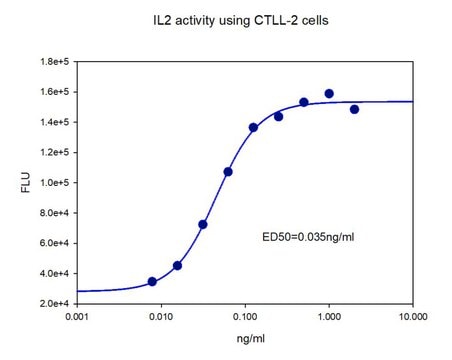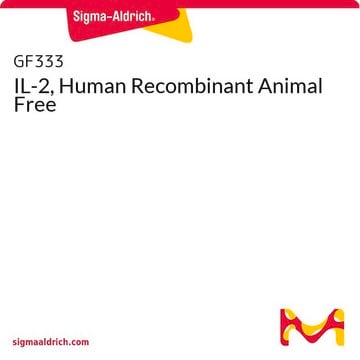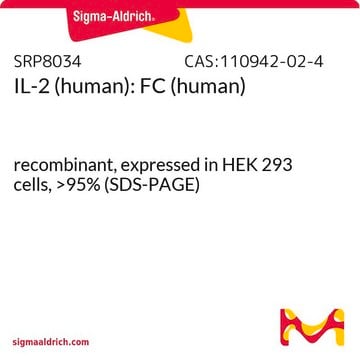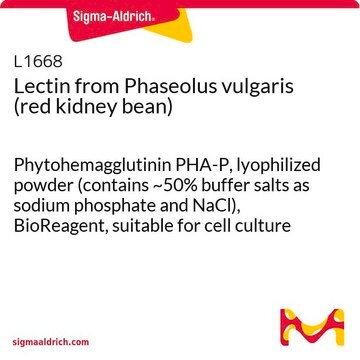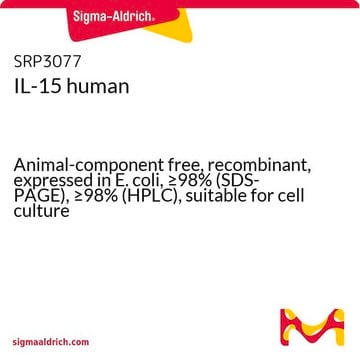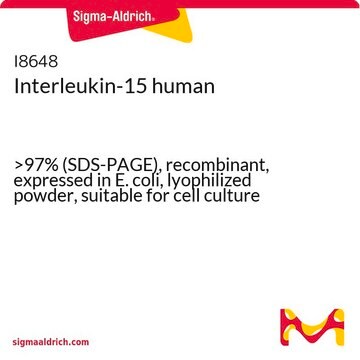I2644
IL-2 human
≥98% (SDS-PAGE), recombinant, expressed in E. coli, lyophilized powder, suitable for cell culture
Synonyme(s) :
IL-2, hIL-2, Interleukin-2, T-cell growth factor
About This Item
Produits recommandés
product name
Interleukin-2 human, IL-2, recombinant, expressed in E. coli, lyophilized powder, suitable for cell culture
Source biologique
human
Niveau de qualité
Produit recombinant
expressed in E. coli
Forme
lyophilized powder
Puissance
≤700 EC50
Qualité
endotoxin tested
Poids mol.
15.5 kDa
Conditionnement
pkg of 5X10 μg
pkg of 10 μg
Technique(s)
cell culture | mammalian: suitable
Impuretés
≤1 EU/μg
Numéro d'accès UniProt
Température de stockage
−20°C
Informations sur le gène
human ... IL2(3558)
Vous recherchez des produits similaires ? Visite Guide de comparaison des produits
Description générale
Application
- in the stimulation of natural killer cells
- to study its ability to stimulate lymphocyte growth and prevent apoptosis
- as an antigen in enzyme-linked immunosorbent assay (ELISA), to analyse the human autoantibody reactivities in health and in type 1 diabetes mellitus
Actions biochimiques/physiologiques
Forme physique
Remarque sur l'analyse
Code de la classe de stockage
11 - Combustible Solids
Classe de danger pour l'eau (WGK)
WGK 3
Point d'éclair (°F)
Not applicable
Point d'éclair (°C)
Not applicable
Équipement de protection individuelle
Eyeshields, Gloves, type N95 (US)
Certificats d'analyse (COA)
Recherchez un Certificats d'analyse (COA) en saisissant le numéro de lot du produit. Les numéros de lot figurent sur l'étiquette du produit après les mots "Lot" ou "Batch".
Déjà en possession de ce produit ?
Retrouvez la documentation relative aux produits que vous avez récemment achetés dans la Bibliothèque de documents.
Les clients ont également consulté
Notre équipe de scientifiques dispose d'une expérience dans tous les secteurs de la recherche, notamment en sciences de la vie, science des matériaux, synthèse chimique, chromatographie, analyse et dans de nombreux autres domaines..
Contacter notre Service technique


